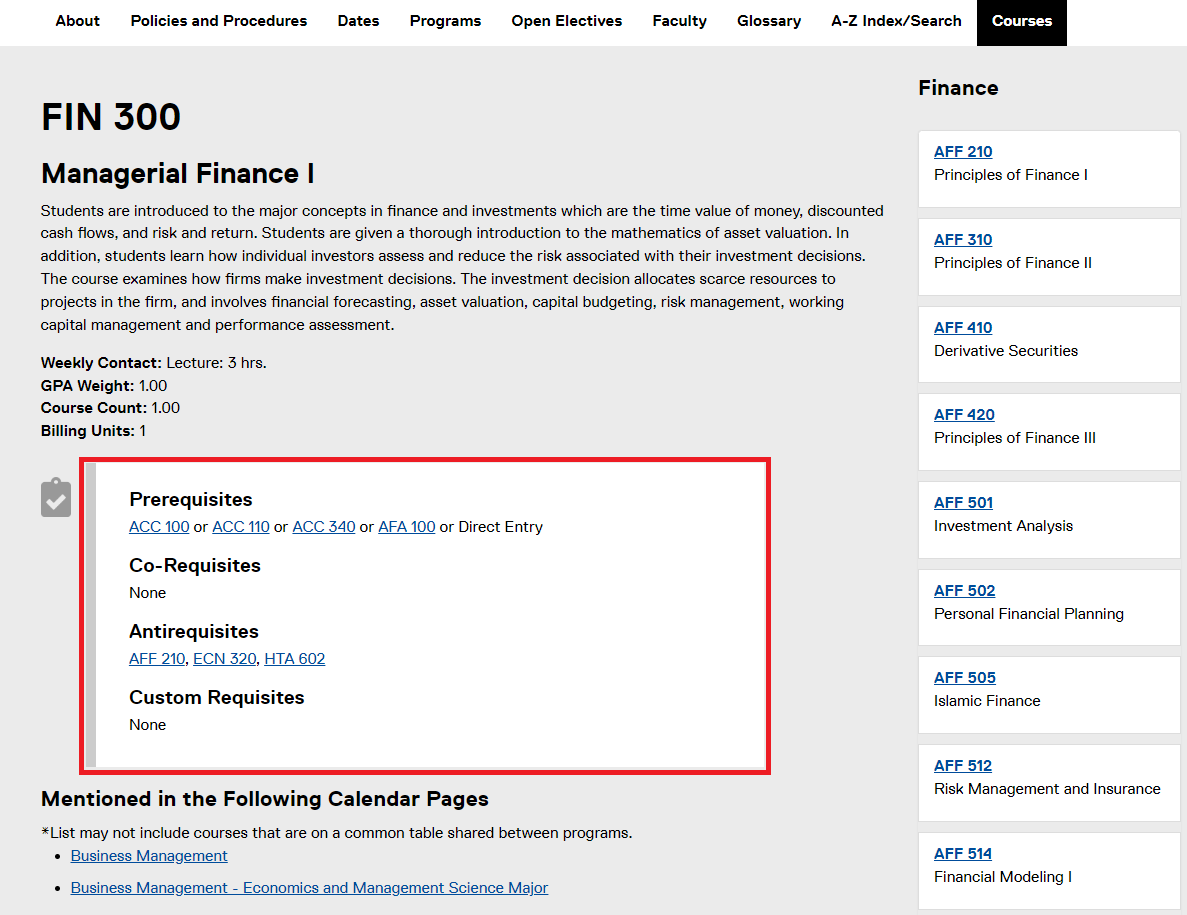Course Categories and Requisites
For a full breakdown of course categories, please refer to the Undergraduate Course Calendar, or contact your Student Advisor.
Liberal Studies
Students must complete Liberal Studies as part of the requirements for graduation in all programs here at TMU.
Such studies must be in disciplines outside the student’s field of professional specialization; their purpose is to develop the capacity to understand and appraise the social, cultural and scientific context in which graduates will work as professionals and live as educated citizens.
These studies are offered at two levels:
Lower - Level Liberals (LL) - Normally taken during the first two years of a four-year program.
Upper - Level Liberal (UL) - Normally taken during the last two years of a four-year program.
Liberal Studies restrictions and reminders
The required number of lower - level and upper - level Liberal Studies courses varies according to program, and is specified in the program's overview in the undergraduate calendar.
Certain courses listed in Table A and Table B due to their close relation to the professional fields, cannot be taken for Liberal Studies credit by students in some programs. A list of these programs and the restricted courses is provided in Table A and Table B.
Students are responsible for making appropriate course intentions. They should review the course descriptions, program curriculum and restrictions published in this calendar with care.
Liberal Studies courses have the designation (LL) or (UL) in their course description. Courses WITHOUT these designations cannot be used towards Liberal Studies fulfillment for graduation purposes.
Open Electives
Open Electives (OE) provide students with the opportunity to choose degree-level courses outside their core or to gain greater depth within their core. Open Electives also allow students to complete courses towards a Minor. Open Elective requirements must be fulfilled using graded, degree level courses. Students may choose any graded, degree level course for which they meet the enrolment (requisite) requirements, including additional core program electives, subject to availability and the following limitations:
You cannot use the following courses to fulfill an OE requirement:
- Lower - Level Liberal Studies courses
- Courses graded on a pass/fail basis, such as orientations, work terms, some internships and practicums, or placement/skills tests.
- School of Accounting & Finance: No ACC or FIN courses, with the exception of ACC 522, FIN 65A/B, FIN 75A/B, FIN 512, FIN 612, FIN 699, and FIN 812 can be used to meet Open Elective requirements. QMS 102, QMS 202, QMS 110, and QMS 210 cannot be used to meet OE requirements.
Students must obtain the permission of their program department to use the following courses to fulfill an OE requirement:
- Degree-level courses which are only offered by The Chang School
- An Upper - Level Liberal Studies course
- Any TMU course completed more than fifteen years prior to admission to TRSM.
Course Requisites
When planning your courses, be sure to understand the different types of courses requisites:
| Term | Definition |
| Antirequisite |
Courses that contain similar content and therefore cannot both be used towards fulfilling degree requirements (If you've taken 'A', you cannot take 'B'). |
| Co-requisite |
A course that must be successfully completed before, or concurrently with, another course (You must take 'A' and 'B' together). |
| Prerequisite |
A requirement, usually a course, that must be successfully completed prior to be eligible to enroll in another course (You must take and complete 'A' in order to take 'B'). |
It is important to pay attention to the requisite requirements for the courses you intend to take as it may affect your ability to enroll in them. You will find the requisite information for courses (if any) in the undergraduate course calendar.
Example below:
